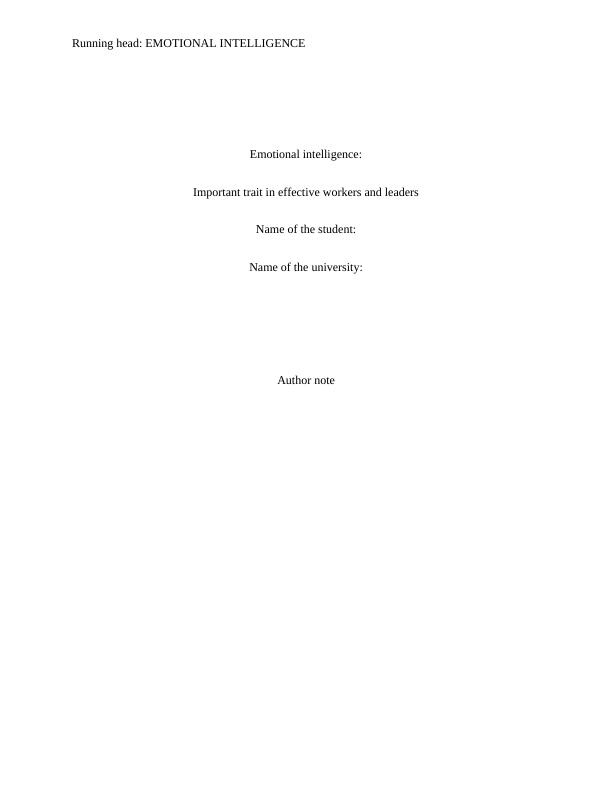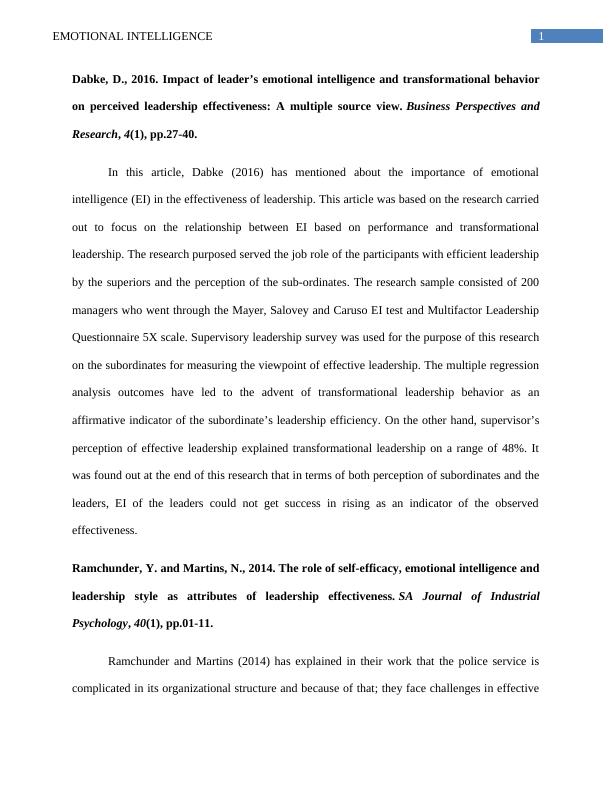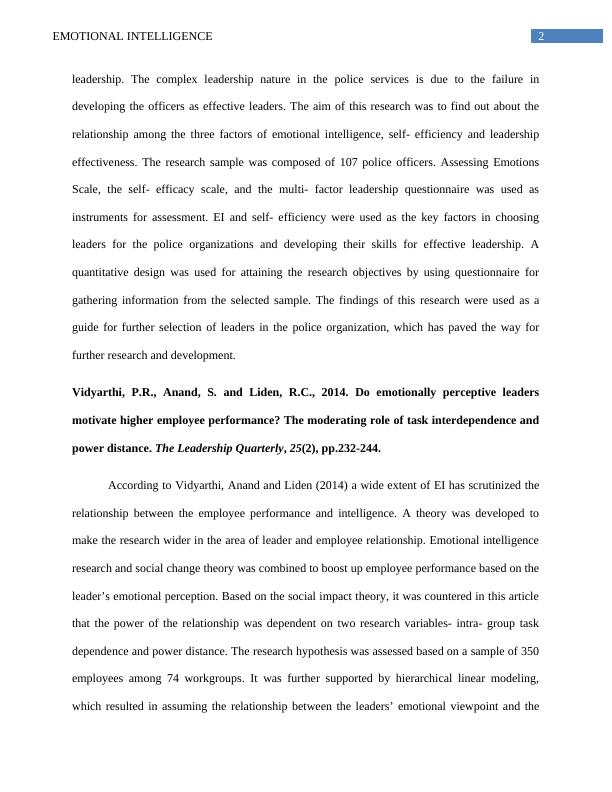Importance of Emotional Intelligence in Effective Leadership and Employee Performance
6 Pages1427 Words197 Views
Added on 2023-06-12
About This Document
This article discusses the importance of emotional intelligence (EI) in effective leadership and employee performance through research studies. It covers the relationship between EI and leadership effectiveness, job satisfaction, team effectiveness, and marketing. The research samples include police officers, managers, and employees. The findings suggest that EI is positively related to leadership effectiveness and employee job satisfaction. The article also highlights the challenges in measuring EI and the need for further research.
Importance of Emotional Intelligence in Effective Leadership and Employee Performance
Added on 2023-06-12
ShareRelated Documents
End of preview
Want to access all the pages? Upload your documents or become a member.
BCOM101 - Emotional Intelligence and Leadership
|6
|1434
|70
LITERATURE REVIEW.
|10
|2479
|76
Emotional Intelligence - Assignment (Doc)
|14
|4396
|162



